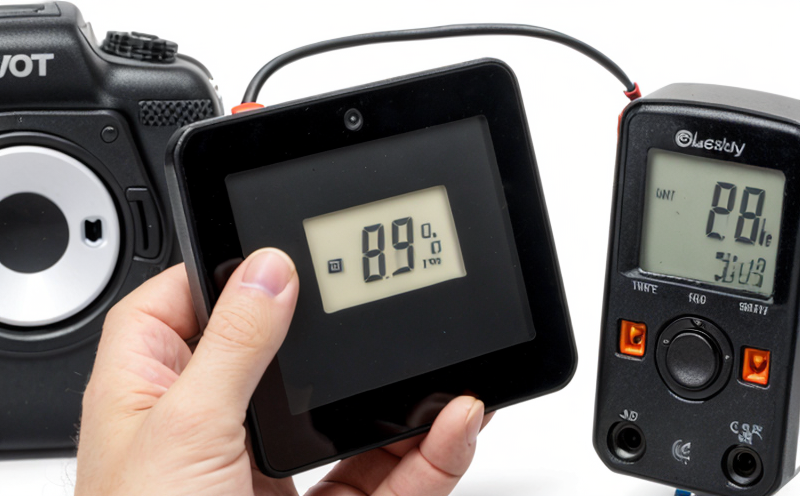Battery Safety Testing in Small Devices
Consumer electronics and small devices are integral to modern life. From smartphones and smartwatches to fitness trackers and IoT devices, batteries power these products, making their safety paramount. Battery failures can lead to fires, explosions, or other hazards that endanger users. Ensuring the safety of batteries in small devices is crucial for manufacturers and regulatory compliance.
Battery safety testing involves a series of procedures designed to identify potential risks associated with battery performance under various conditions. The tests are aimed at preventing malfunctions and ensuring the longevity and reliability of the device's operation. This service ensures that batteries meet stringent international standards, providing peace of mind for both manufacturers and consumers.
The testing process typically involves several stages, including initial inspection, electrical safety checks, thermal stability testing, mechanical integrity assessment, and more. Each stage is critical in identifying potential hazards that could arise during normal use or under extreme conditions. By adhering to international standards such as IEC 62133 for lithium batteries, these tests help ensure the highest level of safety.
Initial inspection involves visual examination and measurement checks on the battery’s physical characteristics. Electrical safety checks include voltage, current, and resistance measurements to ensure proper functioning under standard operating conditions. Thermal stability testing assesses how well the battery can withstand high temperatures without overheating or catching fire. Mechanical integrity assessment evaluates the battery's ability to maintain its shape and function when subjected to physical stress.
The testing process is highly technical and requires precise instrumentation capable of measuring minute changes in performance indicators. The use of advanced equipment such as calorimeters, differential scanning calorimeters (DSC), and thermal imaging cameras ensures accurate data collection during tests. Reporting on these findings provides detailed insights into the battery's behavior under specific conditions, helping manufacturers make informed decisions about product design and improvement.
The importance of this service cannot be overstated. Failures in small device batteries can have severe consequences, not only for individual users but also for broader safety concerns within society. By adhering to rigorous testing protocols, we contribute significantly to enhancing public safety and trust in consumer electronics.
International Acceptance and Recognition
- The service is globally recognized by major regulatory bodies such as the International Electrotechnical Commission (IEC), Underwriters Laboratories (UL), and the European Union's New Approach Directives.
- Battery safety testing adheres to international standards like IEC 62133, UL 1642, and EU Directive 2019/775. Compliance with these standards ensures that products meet rigorous safety requirements across different regions.
These standards are designed to harmonize testing procedures and criteria among various countries, ensuring consistent product quality and safety. By aligning our services with these international benchmarks, we help manufacturers navigate complex global regulatory landscapes efficiently.
Environmental and Sustainability Contributions
- The service promotes the use of sustainable materials in battery design through rigorous testing which helps manufacturers identify more environmentally friendly alternatives.
- Battery safety testing encourages the development of safer, longer-lasting batteries that reduce waste and environmental impact. This contributes to a more sustainable future by minimizing the need for frequent replacements and reducing electronic waste.
By focusing on environmental considerations during testing, we support the transition towards greener technologies in consumer electronics. Our commitment to sustainability aligns with broader industry trends aimed at reducing carbon footprints and promoting responsible manufacturing practices.
Competitive Advantage and Market Impact
Battery safety testing provides a competitive edge by ensuring products meet or exceed international safety standards. This not only protects the brand's reputation but also enhances consumer trust, leading to increased market share. Compliance with rigorous safety protocols can differentiate a product in highly competitive markets.
Our service helps manufacturers avoid costly recalls and legal issues associated with non-compliance. By identifying potential hazards early in the development process, we enable companies to make necessary adjustments before products reach the market. This proactive approach fosters innovation while maintaining high safety standards.
The demand for safer electronics is growing as consumers become more aware of the risks associated with battery failures. Our testing service positions manufacturers at the forefront of this trend, ensuring they remain ahead in terms of product reliability and safety.





